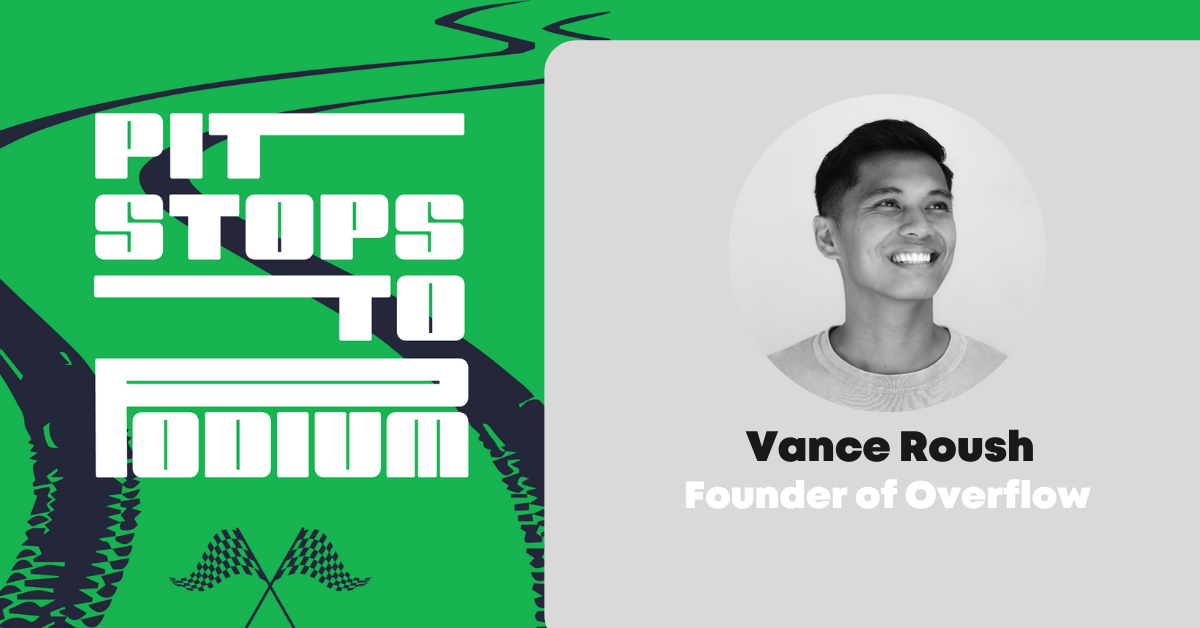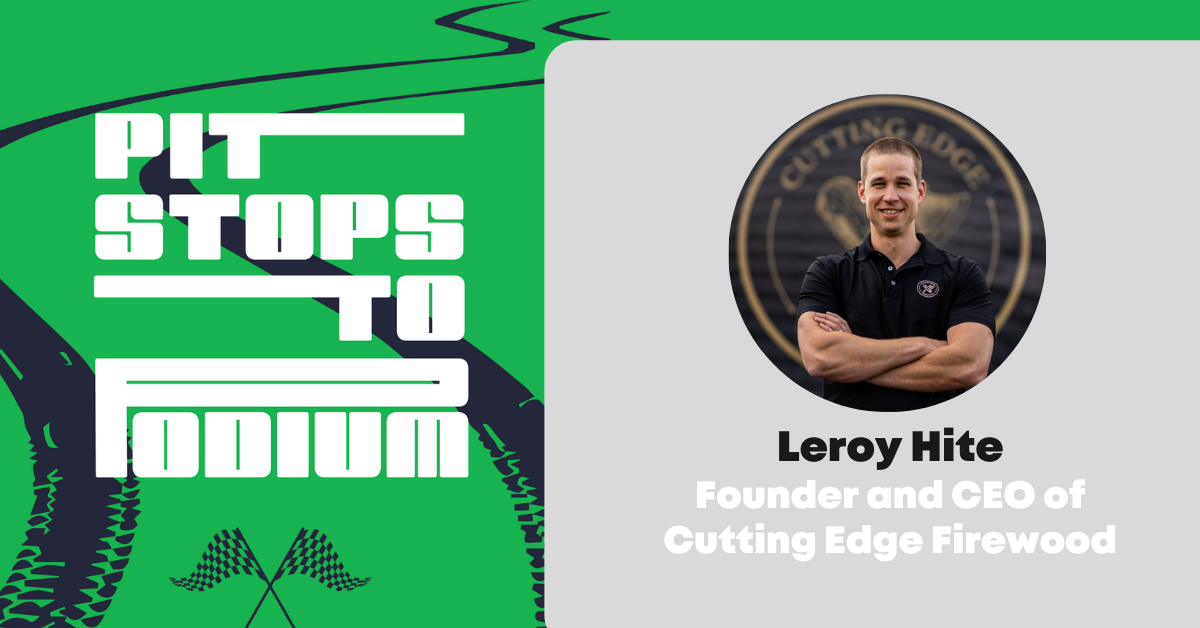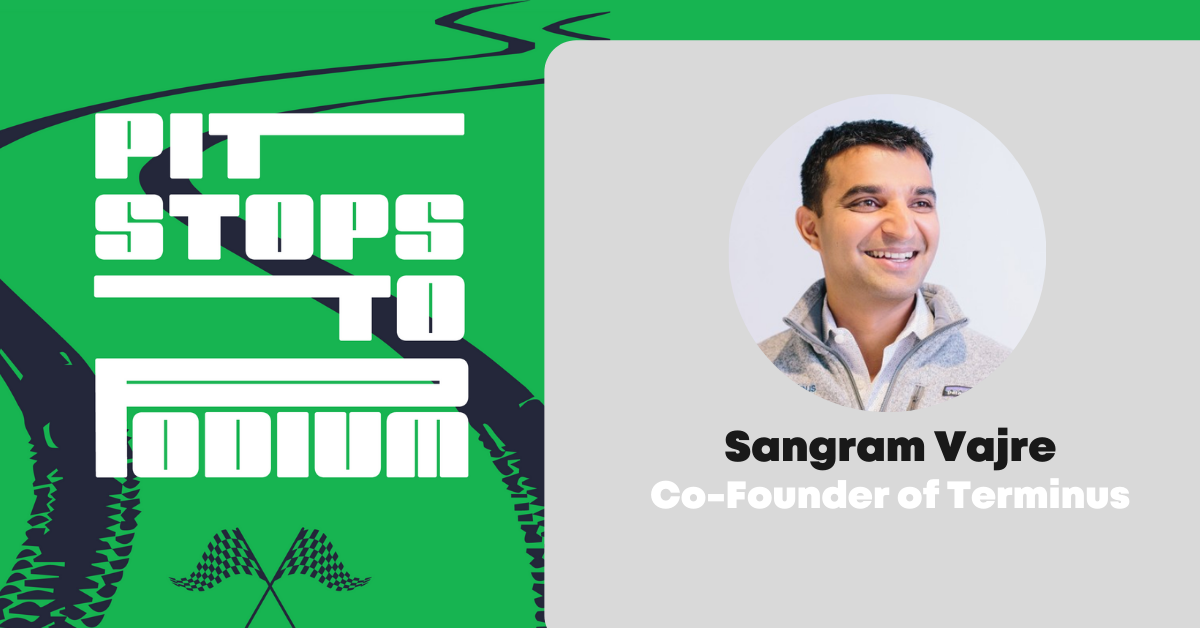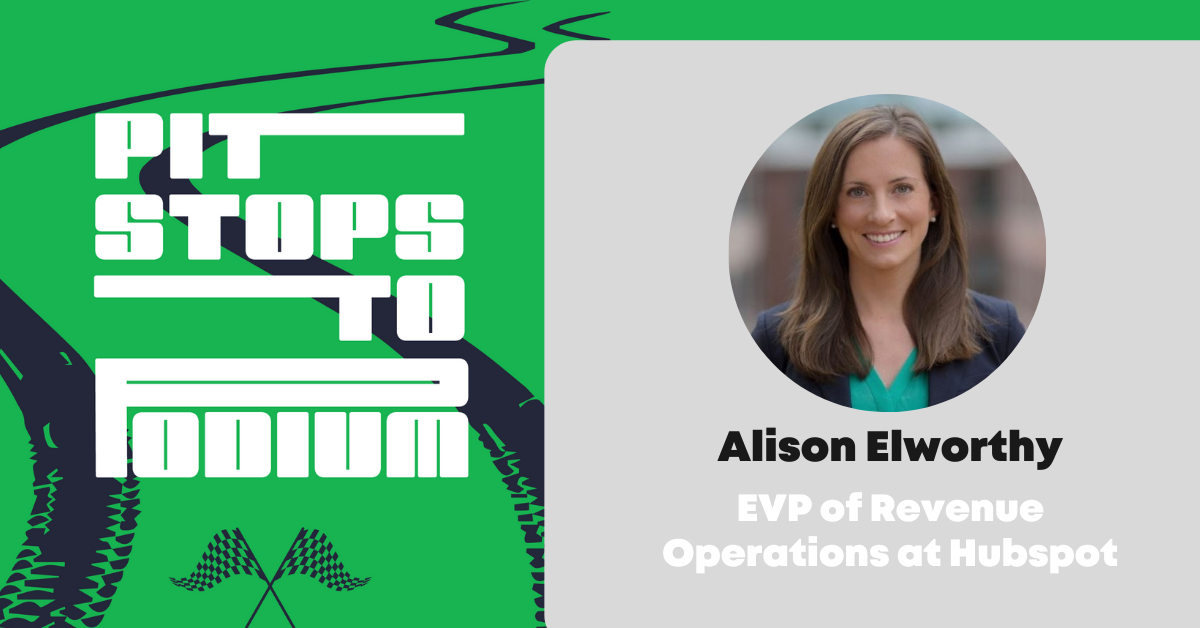Table of Contents
In this podcast episode, Vance Roush, the CEO and Founder of Overflow, shares the value of inspiring the world to be generous. Overflow recently raised a $10M Series A round to bring philanthropy into the future. Learn how a mindset and culture of extravagant generosity in a company can foster even more generous living and actions within the broader community.
Vance founded Overflow in March of 2020, a platform developed for building the infrastructure to make generosity over every major asset class. He also works as Co-Founder and Executive Pastor at Vive Church, serving on the founding team of C3 Silicon Valley. Outside of work, Vance enjoys playing basketball and spending time with his family.
Pitstop Highlights
Giving Back is More Than a Transaction
Giving back to the community is more than simply giving out a free meal or donating money to an organization. To Vance, giving back revolves around the idea of inviting the community to have the privilege to be a part of what they’re doing at Overflow.
Overflow consists of a unique business idea aimed at using people’s stock portfolios and cryptocurrency to make it easier to donate to non-profits. The company makes it easy for those people to give out of their wealth and their abundance – inherently unlocking unprecedented levels of generosity.
The Sense of Belonging in Overflow’s Community
What Vance and Overflow are doing is creating a strategic partnership between their non-profit customers and businesses and communities that believe in the same values. When non-profits join Overflow, not only are they going to be confident in utilizing a world-class tool, but also know they’re going to have a partner that will help build a culture of generosity beside them.
Connecting Values to Action
What’s truly important to Vance in Overflow is that their actions match their values. Overflows stance on generosity? Donating 10% of all their revenue back to the causes that they’re connected to.
What’s even more interesting is that Overflow calculates that 10% of revenue every month and divides it among team members who have the freedom to choose what causes they want to support.
“Each of our customers gets a really meaningful and thoughtful gift upon signing a contract with us. Things like that are, you know, potentially surprises, but hopefully eliciting that culture of generosity that we aim to pioneer, teach in, and come alongside our customers with.”
Connect with Vance:
- Connect on Linkedin: https://www.linkedin.com/in/vanceroush/
- Email: Vance@overflow.co
- Engage with Overflow: http://www.overflow.co
Full Transcript:
Brendan: Hey everybody, welcome to Pit Stops to Podium, the RevPartners podcast where we talk to execs who competed and won in taking their companies from high growth to high scale. My name is Brendan Tolleson. I am the co-founder and CEO of RevPartners, and I'm delighted to have with me Vance Roush for this edition of Pit Stops to Podium. Welcome, Vance.
Vance: Thank you, Brendan. Good to be here. Thanks for having me.
Brendan: Absolutely. Well, Vance is the CEO and founder, I believe, of Overflow. And Vance, for our audience before we get started, how about you let them know who Overflow is because it's a really cool concept that's kind of disrupting or creating rather a really new space in the market.
Vance: Yeah, Yeah. Overflow is an online donation platform, so we serve nonprofits, universities, and churches with our donation platform are unique. Our take is that we help nonprofits, churches, and universities get stock donations from their supporters and from their donors. It's interesting that you know, today most donors actually hold their wealth in non-cash assets, primarily stocks. But if you think about the nonprofit space, we're still exclusively fundraising for cash. So stock donations are, in our opinion, the most underutilized but potentially highest leveraged channel that we can empower our customers with.
Brendan: Yeah, I love it, I remember you telling me about it for probably the first time, about three months ago, and it's kind of that next frontier and it's a really exciting mission that you guys have. Well, Vance, before we get to our big idea, we do have a tradition here at Pit Stops to Podium and it's to get to understand our guest outside of what they do on a day to day, or at least from a work perspective. So Vince, what are three fun facts that our audience should know about you? Outside of overflow?
Vance: Amazing, yeah, so no one outside of overflow. I have four other startups that I'm working on. Four kids, actually. It's Lennox, Emerson, Tatum, and we actually have one on the way. My wife is pregnant with our fourth. Yes, so we're either smart or stupid. I don't know. We'll see. Number two, I would say I'm super passionate about basketball since I was like five years old. I had dreams to be in the NBA, to be one of the first Asian-American NBA basketball players. I let Jeremy Lin have it and decided to do other things.
Brendan: Who's your team?
Vance: Well, I live in the Bay now, so the Golden State Warriors, that's not just because I'm a bandwagon, right?
Brendan: Convenient.
Vance: Number three, you know, alongside the building and founding of Overflow. I was of the founding team of a church called Vive in the Bay area, so I actually am the pastor as well.
Brendan: Oh, very cool. Yeah, you keep yourself busy with kids, church, and building a business that just you just raise around, right?
Vance: Yeah, Yeah. We're going to announce our series A pretty soon here. So we're excited about that.
Brendan: So hey, let's transition the big idea, and it's really around this concept of a passion that you have, which is inspiring the world to be generous. And so before we get into this topic, let's just do it to define her. How would you define generosity when you say that?
Vance: Yeah, I've been really captivated by this ancient proverb. You can find it in Proverbs 11:24 It articulates generosity and the principle of it. Like this the world. The generous gets larger and larger. The world of the stingy gets smaller and smaller. So that's kind of the outcome of the principle that if you apply in your life, you can expect in your life that I've personally experienced another way I would probably characterize generosity. Words that come to mind when I've experienced is extravagant, right? You know, I just remember early on the first time people would like pay for my food. It's the tension between being offended, like, no, don't do that. Like, you really shouldn't do that. Like I can. But then also very grateful, like, wow, thank you for doing that. I get that sensation every time I engage with incredibly generous people, and it's really, really, really cool.
Brendan: I love that. And let's I want to kind of break that down a little bit in terms of inspiring the world to be generous. We talk, we talked about extravagance and you talked about a few other ways in which you define it. But overblow context, you talk about more of it's more than just a transaction. What you describe like the giving concept of the lunch you just describe, it's more than just paying for someone's meal. But like, let's build off of that. So what do you when you say it's more than transaction, what does that mean in your mind?
Vance: Well, being a pastor and, you know, having the privilege to see, you know, thousands of people in our own community step up and build a lifestyle of generosity right, in the church world, we call it the tithe, right is that, hey, we're so grateful for everything that we have that we're going to set a lifestyle to give consistently back to our community. Right, but even outside of the concept of the church, there is this idea of altruism. There's this idea of a responsibility to give back. But if I look at the non-profit space at large, what has been interesting is the way that we communicate. The goals that we're trying to hit for our organization seems much more focused on the single solicitation or the activating a transaction rather than actually building a culture of generosity. It actually, you know, and this was confronting to me when I used to think about it this way, but it's almost as if there's this culture of like, you know, please, would you give to us, rather than inviting the community to have the privilege to be a part of what we're doing right? And it's just a different mindset. It's a different type of culture where the former what it does is it actually, you know, gives this mindset to the supporter that I'm doing you a favor, right? Or it gives this mindset to the donor that, Oh yeah, sure, I'll give you my leftover, but, you know, overflow. What we're trying to do is we're trying to flip that on its head. We don't need leftovers. We want your overflow. And so one kind of cool, unique business way to do that we found was where do people hold their wealth? It's not actually in their checking and savings anymore. It's in their stock portfolio. And if they have a stock portfolio, they're probably living out of abundance. And so if we can make it super easy to give out of their wealth and their abundance, we actually inherently unlock unprecedented levels of generosity or the potential of.
Brendan: Yeah, I love that. It's that gets back to that whole concept of extravagance. And the overflow is a great, a great definer for your company in light of what you just described. But there's also this interesting aspect that you were just getting into and you talked about this invitation. There's a communal aspect, right? So there's a sense of belonging. Let's park on that for a little bit in terms of what generosity can create from that perspective.
Vance: Yeah, that's a key word, especially in our line of business, is that a lot of times when we're talking with our nonprofit customers, pastors, leaders of universities that are in the development space, the fundraising space, the giving space, what we're doing with them is we're creating a strategic partnership and we're inviting them into a community of others that believe in the same values, the same virtues and really the same vision that we have, you know, a world that is going to become more and more generous through the teachings, education and invitation of people to be part of the different missions and causes that we're a part of. And so when we do that, we are presenting to them a really cool platform, right, that we work to really, really hard to build right where we're presenting them pricing and packaging structures that they're going to be subscribing to. But more than that, what we see lead to conversion or what we see lead to them, I guess joining the overflow family is just this underlying belief that, Oh wow, when I work with overflow, I know I'm going to get an incredible world class tool, but I also know I'm going to get a partner that's going to come alongside me to build a culture of generosity within my organization. And if you think about social impact orgs, nonprofits understanding how to do that and having the right tools to do that is actually the thing that moves the needle in fundraising, right? And so that's what we're really aiming to do.
Brendan: So Vance, for the last kind of topic within generosity, you kind of touched on a little bit in terms of there's invitation you're creating this community, but there's also an action aspect of it. So you're trying to inspire this generosity not only through the marketplace that you're creating reconnecting individuals, institutions with these nonprofits, but also how does that manifest itself from an Overflow perspective in terms of how that value impacts or informs the decisions that you make as a leader and as an organization?
Vance: Yeah, great question. I mean, we cannot take anybody anywhere we haven't been before, right? That's leadership. And so what's really important to us is that our actions match our values. Culture is not just reinforced by your beliefs, but your actions that reinforce those beliefs during every single touchpoint with the customer. And so a lot of times customers might put the mirror back on us and say, OK, cool Overflow, you are preaching this message of generosity. What's Overflows stance on it? And ours is really clear because we established it when we first started the company that we are actually going to give 10% of all of our revenue back to the causes that we're connected to and our profit. That's nonprofit. And so it's easy to do 10% of profit when you're a startup and you're not making any money, right? But yeah, no, no topline revenue. And we do it in a really unique way where we actually calculate that every single month and then we update our team because what we do is we share that generosity fund and we just divide it by the amount of team members that we have and they get to choose what causes they want to support with it. So collectively, we're giving back to the ecosystem. So that's just like one tangible way. There's so many different ways that we try to translate that into our onboarding and activation processes. Each of our customers gets a really meaningful and thoughtful gift upon signing a contract with us and things like that that are, you know, potentially surprises, but hopefully eliciting that culture of generosity that we aim to pioneer, teach in and come alongside our customers with.
Brendan: Well, I'm sure Nellie inspires generosity, but when you do that. And it's also good for business, I would imagine that that's creating retention, expansion, et cetera. Which, yes, which are all positive things. And it creates a community that we just talked about. Well, Vance, I know I'm inspired, but what are some practical tips or not tips, but really next steps I should say that our audience could take as it relates to engaging with overflow or with you individually.
Vance: That's awesome, yeah, I mean, the best way to connect with us is probably through one of our social media channels, we're on Instagram, Twitter, LinkedIn, you can look up Overflow or Vance Roush and get connected that way. You can always reach out to me vans at overflow echo or our website is simply overflow echo.
Brendan: All right. Well, thank you so much for stopping by. We really do appreciate it. We'll talk soon.
Vance: Thanks so much.
Want to learn more from industry experts?
Come check out the full Pit Stops to Podium podcast repository!




